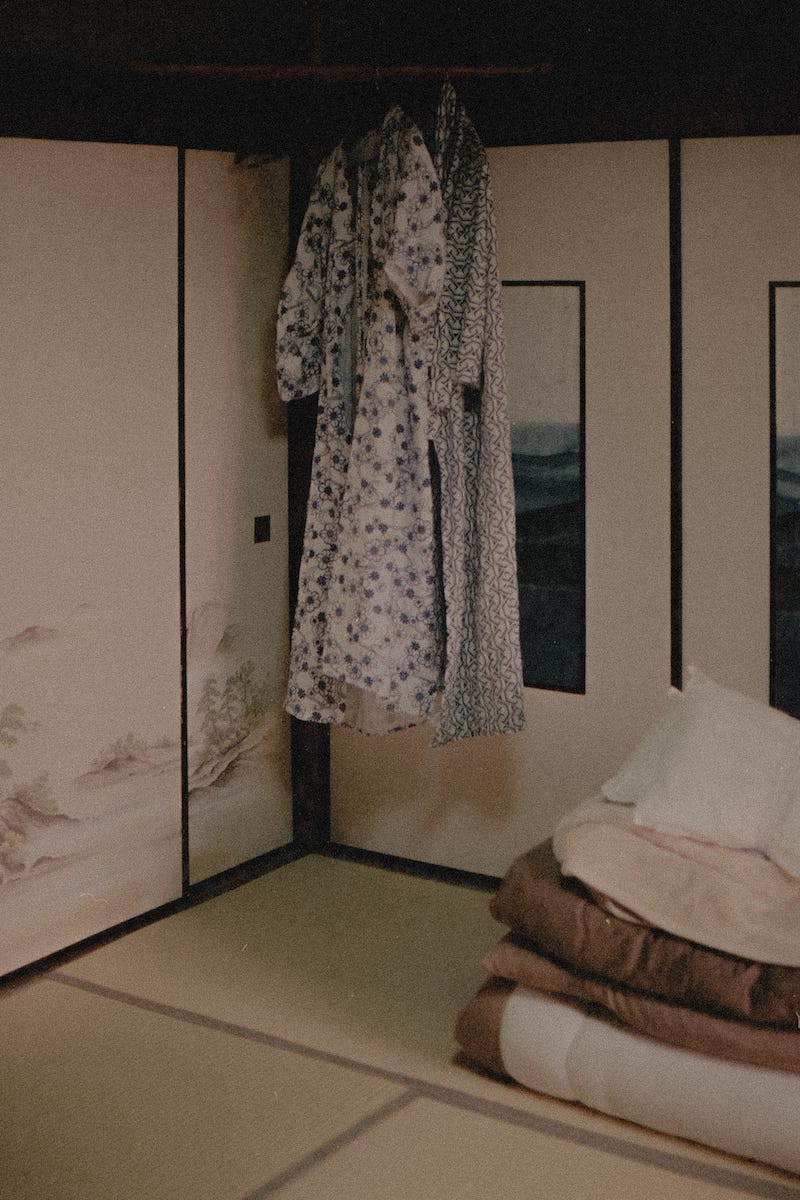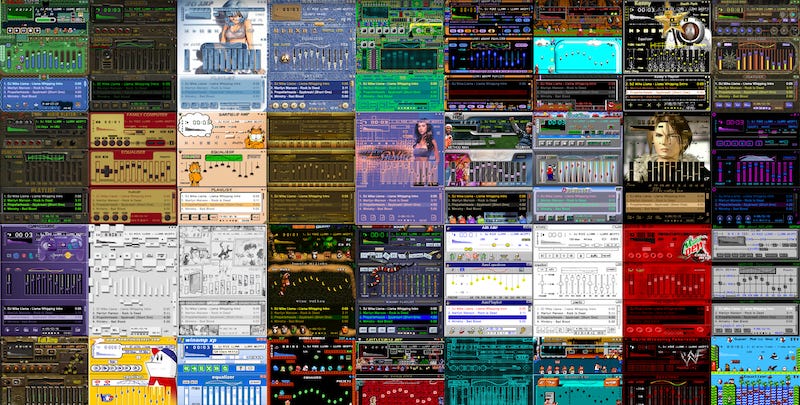Poetics of Amputated Bodies
"It is not the work of a single body moving in space, nor is it the work of several bodies, it is created where body spheres cross."
Another Sunday, Another Naive Weekly - Observations From The Internet Wilderness.

“An age that has lost its gestures is obsessed with them. For human beings who have lost every sense of naturalness, each single gesture becomes a destiny.”
— Giorgio Agamben, Means Without End.
When I bike around Copenhagen I meet skaters, dog-walkers, tired-dads — and groups of teenagers dancing. The dancing teenagers are everywhere. Each group is tirelessly rehearsing choreographed dances while one person films everything with their mobile phone.
While the teenagers are outside dancing, I am inside zooming. Because of the pandemic my work has moved from one corner of our flat to another. But regardless of whether I am sitting in the kitchen, living-room, or bedroom, I am sitting in front of the computer, ready to jump in and out of video calls.
Last week I came across one of those haha-videos media sites make in hopes of it going viral. Over one week the journalist played pre-recorded video clips of himself at their virtual team meetings. To no surprise he got away with it; none of his colleagues realized the trick. I find it disturbing how unsurprising it all felt.
As Ditte writes in this week’s Reader Interview, something is lost when we no longer come together as whole human beings. It is fascinating how we can walk in and out of each other’s homes, but we can only do so as amputated digital beings, without body and limbs.
With care,
Kristoffer
VISUALLY PLEASING

Script for optimal peanut butter and banana sandwiches.
READER INTERVIEW
Ditte Graa Wulff navigates chaos and uncertainty with calmness. Back in 2014 our paths crossed as we played different roles in a virtual reality laboratorium for twenty Nordic film talents. Ditte quickly gained my respect for her ability to simultaneously execute and strategize. Today she serves as CEO of futures design studio Bespoke. She is an extraordinary facilitator and a wonderful human.
K: Who can write the future?
Ditte: Everyone can! Yes, that’s an easy statement to make, but nonetheless something that has been present with me since I entered the professional field of futures studies and design. The field has traditionally relied on a business model that holds people in the belief that ownership and understanding of the future lies with the few and with the experts. The more I work in this field, the more crucial it becomes to me that we must democratise how we approach the concept of future.
K: Where do you go to get lost?
Ditte: Once in a while, I dive deep into a conspiracy theory. Nothing that can make you feel more lost than a tightly knit web of alternative facts where your moral compass or common sense just don’t apply.
K: What emotion is lost online?
Ditte: Human connectedness. Is it just me, or is it slowly becoming a collective conclusion coming out of COVID-times, that “we can actually do the same things remotely”? I don’t think so. Or rather: I don’t want to think so. I want to believe that people can do more when they come together as whole human beings and energies than as two-dimensional faces exchanging words on a screen. But I find it surprisingly difficult to decode what that physical dimension actually does to human communication, and I think it’s an important time to develop a better understanding of exactly that.
K: What was one rabbit hole you recently fell into?
Ditte: The ASMR community on youtube. Still genuinely puzzled by that experience.
K: What is your most frequently used emoji?
Ditte: Peace emoji. I feel like it’s the one that comes closest to that small smile you would make after exchanging a small piece of information or small talk - like “See you soon”. Not sure that’s how it lands with others though… 🤔
K: How do you think about time?
Ditte: I’m a child of the 80’s and 90’s, so I’ve been used to think about time as a resource to be optimised: Eat on the go, train while you watch TV, microwaves… you name it. Lately, I’ve been trying to replace the concept of time with one of attention, and I find there’s something liberating about it. Rather than being a slave of time passing or happening to me, I can have an ownership of the attention I want to invest. There’s something draining about “never having time enough” and something empowering about “having to prioritise your attention”.
K: Who are your spiritual mothers and fathers?
Ditte: I found this question really annoying to begin with, but then I had a thought: It’s because I don’t have anyone I can call a spiritual mother or father - but I would like to. I have people around me who have that capability of leaning fully into the energy and wisdom of one other human being. Like a blind trust. It’s beautiful actually. But I can’t seem to let go of enough control to take that leap. Say, what if it turned out that I had let myself be adopted by the wrong spirit....?
ROADSIDE FLOWERS

Listen to birdsongs, wind blowing, and water falls around the globe.

Buy from black owned businesses.

Infinite scroll through 65k Winamp skins. Yes, it has previews too.

Build your own lo-fi music stream.
INTERNET STORIES
“We don’t need less technology, we need more nature,” is the guiding idea of Simon Collison’s self-initiated research project into the internet of natural things. If you are drawn to nature, you’ll enjoy this goldmine of articles. Technology is only opposite to nature if that is how we use it.
Wilderness and Garden-Making, Post-Internet
How we design our gardens reflects our understanding of the world. For example, in the Middle Ages wilderness was understood to be dangerous and was as a result kept out of gardens because. So… how do the gardens embody today’s cultural zeitgeist?
I don’t agree with Julian Lehr when he reduces social media use to the goal of building social capital. However, I like his thoughts on proof-of-work mechanisms. When I post a run on Strava, it is proof of workout. A TikTok dance is proof of creative work. It sparks Julian to ask what other proof of work mechanisms should exist.
INTERMETMEZZO

“While the current internet is 24/7, renewable energy like wind, solar and tidal power is intermittent. The end user behaviour plays a fundamental role in the growing consumption of the internet, and will decide the limit of the greenness of the internet in the future. The project explores the possibility of aligning internet usage with the availability of renewable energy to minimise individuals’ internet carbon footprint.” — Lu Ye
Naive Weekly
Hi, I’m Kristoffer and you have just read Naive Weekly - Observations from the Internet Wilderness.
Okay. So this week two readers became paid subscribers. It blows my mind to now have thirty people chipping in. Thank you Anders for all the good conversations we had making Techfestival. Thank you Sascha for all the conversations we had on communities, deep diving and beyond.
Last week this newsletter was sent to 618 people. Thirty (thirty!) people are crazy enough to chip in every month/year to support me making time to write this newsletter: Nikolaj, Lars, Ditte, Jakob, Antal, Anders, Sascha, Cecilie, Søren, Dries, Tina, Gautier, Sarper, Maarten, Mystery, Joshua, Thomas, Mikkel, Aydo, Lukas, Hans, Vibe Johanne, Csongor, Dad, Ida Marie, Yinka, Stine, Troels, William & Angela!
Photograph by Ana Santl.
And many thanks to Anne for sharing the Agamben quote with me in our conversation about TikTok, dances and understanding.
<3
Kristoffer

